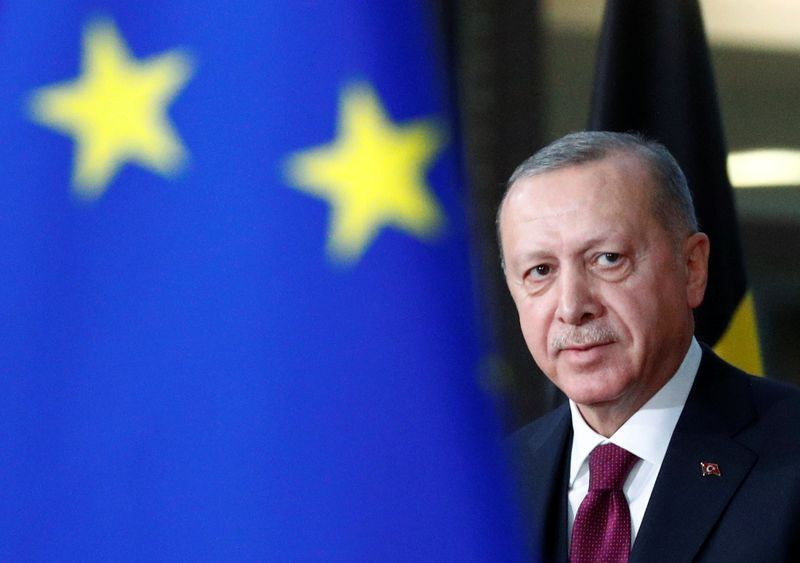
ANKARA (Reuters) – President Tayyip Erdogan said on Tuesday that Turkey would strengthen the right to a fair trial as well as freedoms of expression and organization in the country as part of what his government has called a Human Rights Action Plan.
The plan, promised in recent months as part of a series of legal and economic reforms, would also improve the judiciary system, Erdogan said at the presidential palace in Ankara.
No one can be deprived freedom because of their thoughts, said Erdogan, who has faced criticism both at home and abroad for his increasingly autocratic rule over the NATO member country.
As part of a nine-point plan, Erdogan outlined measures to improve the judicial system in areas including nationalisation of land and the trial of minors, to steps to ensure a speedy trial and ease business conditions. He said the government was reviewing prosecution of crimes related to the press and internet.
“Improving freedom of expression, organization and religion…is the goal we have so far worked the hardest on,” he told ministers and other government officials.
“We will not water every flower we see,” Erdogan added. “While watering a flower with its head bent means justice, watering a thorn means cruelty.”
Critics say Erdogan’s government applies political pressure on the judiciary, which has been bent on punishing thousands of the government’s perceived opponents since a failed coup in 2016. Ankara says courts are independent and it has acted in the face of threats to the country.
Turkey has ignored rulings by the European Court of Human Rights for the immediate release of high profile philanthropist Osman Kavala, jailed more than three years without conviction, and Selahattin Demirtas, former leader of Turkey’s third largest party, the pro-Kurdish Peoples’ Democratic Party (HDP).
The court, whose rulings are legally binding, says such detentions violate human rights and only serve to limit pluralism and political debate.
Erdogan added on Tuesday that a committee would be set up to observe human rights conditions in prisons and that a human rights report on Turkey would be published annually.
Reporting by Tuvan Gumrukcu Ali Kucukgocmen; Writing by Jonathan Spicer; Editing by Dominic Evans
IMAGE: Turkish President Tayyip Erdogan arrives for a meeting with EU Council President Charles Michel in Brussels, Belgium March 9, 2020. REUTERS/Francois Lenoir



